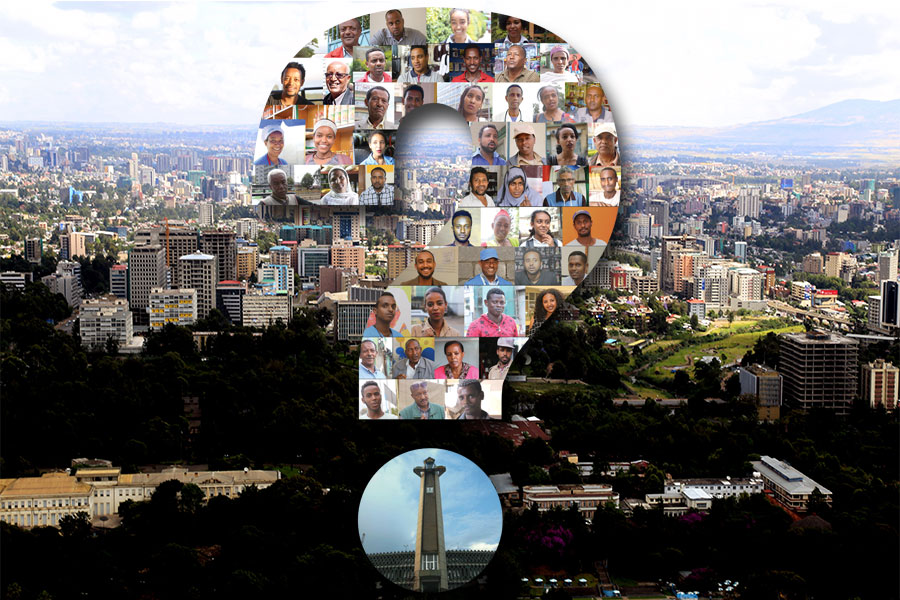
Editorial | Nov 02,2024
Almost one-third of employees at the Addis Abeba plant under East Africa Bottling S.C. have staged a walkout over a dispute with annual bonuses and unanswered requests about incentives and workplace compensation. Over this past week, close to 500 employees of the bottler of Coca-Cola abandoned their workstations for two days in light of a notice from the company informing them that this year's bonus covers only two week's pay.
Employees had expected bonuses amounting to at least two months' salary. Even though the strike started this past week, the employees have been facing issues at work for some time now.
"This makes us doubt we're even going to get the raise that we've been looking forward to," one of the employees on strike told Fortune.
The company, 61pc controlled by South African Beverage Company (SABCO), employs close to 1,000 people at its Addis Abeba plant and has 2,500 employees across the three plants it operates in Addis Abeba, Dire Dawa and Hawassa. The largest soft drink bottler since 1959, East Africa Bottling distributes over 800 million bottles a year. But it is rare to see labour strikes at the company.
The disgruntled labour force now claims management declared on various media platforms that the company had provided about 12 million Br to assist the employees and their families in light of the COVID-19 pandemic, support which they say they have not yet received.
The complaints of the aggrieved labor were valid, according to Nigus Alemu, legal council and social affairs director at East Africa Bottling.
"But the way they presented then was inappropriate," Nigus told Fortune.
The strike has led to the disruption of production, but things have normalised since then, and the employees are now back at work, he confirmed.
"We had a meeting with our employees and we agreed to start production the day following the strike," he said. "The management is working to respond to their requests."
Nigus declined to comment further on the matter.
How the management responded to date remains a source of disappointment to the workers.
"We're saddened by how the management is treating us," said an employee who requested anonymity. "We've been serving even during the pandemic; we never stopped production."
The management wants a win-lose conflict-solving method, a person familiar with the case claims. Dissatisfaction by the workers has long been on the edge of boiling over, and it now has, because the top-level management has neglected the three incentives needed to keep employees happy: economic, social and moral, according to this person.
"Management should've allowed for open discussions rather than wait for things to escalate," said this person. "They chose not to."
It is within the legal rights of the workers to strike until their demands are met, but the issues raised in this case could be solved based on collective bargaining through discussions with their union, said Henok Teshome of the Ethiopian Labour Rights Watch.
"The worst-case scenario is that it goes to court," he told Fortune.
A labour relations board under the Ministry of Labour & Social Affairs has the mandate to look into such labour dispute cases.
PUBLISHED ON
Mar 27,2021 [ VOL
21 , NO
1091]

Editorial | Nov 02,2024

Radar | Aug 10,2025

Fortune News | Apr 26,2019

Radar | Nov 02,2019

Commentaries | Dec 09,2023

Dec 22 , 2024 . By TIZITA SHEWAFERAW
Charged with transforming colossal state-owned enterprises into modern and competitiv...

Aug 18 , 2024 . By AKSAH ITALO
Although predictable Yonas Zerihun's job in the ride-hailing service is not immune to...

Jul 28 , 2024 . By TIZITA SHEWAFERAW
Unhabitual, perhaps too many, Samuel Gebreyohannes, 38, used to occasionally enjoy a couple of beers at breakfast. However, he recently swit...

Jul 13 , 2024 . By AKSAH ITALO
Investors who rely on tractors, trucks, and field vehicles for commuting, transporting commodities, and f...

Oct 18 , 2025
The political establishment, notably the ruling party and its top brass, has become p...

Oct 11 , 2025
Ladislas Farago, a roving Associated Press (AP) correspondent, arrived in Ethiopia in...

Oct 4 , 2025
Eyob Tekalegn (PhD) had been in the Governor's chair for only weeks when, on Septembe...

Sep 27 , 2025
Four years into an experiment with “shock therapy” in education, the national moo...